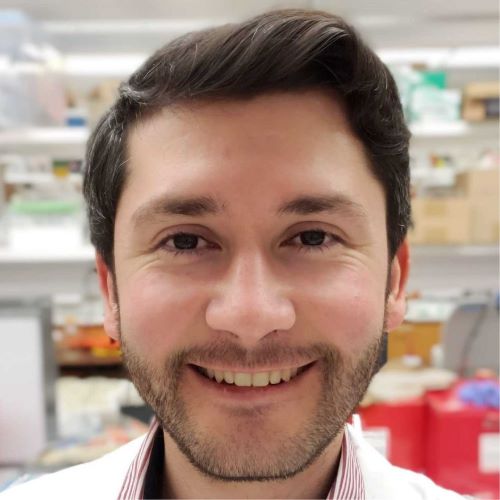Orlando Arguello-Miranda

Bio
Cell Biology Through Data Science
Our laboratory wants to understand how cells divide. We want to discover new biochemical mechanisms that help cells divide when needed. In the same manner, we want to learn how cells stop whenever cell division is too dangerous and could result in irreversible cellular damage. In humans, problems in the control of cell division cause diseases such as cancer and can interfere with wound healing or the maintenance of adult stem cells. In addition, for many bacteria, parasitic organisms, and agricultural pests, the capacity to stop cell division and enter dormant or quiescent states is critical for becoming resistant to antibiotics and pesticides. Thus, understanding how cells activate or stop their machinery for cell division promises to advance both biomedical and agricultural knowledge.
To analyze dividing and non-dividing cells, we use a unique combination of biochemical methods with machine learning approaches. We track individual cells as they enter or exit from cell division using custom-made algorithms for image analysis. The information derived from monitoring single cells is processed using machine learning algorithms to cluster data sets, identify correlations, and infer causality in intracellular biological networks. Machine learning-inspired hypotheses are then tested using biochemical and genetic tools in model organisms such as the yeast Saccharomyces cerevisiae.
Our current projects aim at:
- Understanding how cells stop their cell cycle machinery and enter an intriguing state called “cellular quiescence”
- Developing new sensors to track intracellular processes during entry and exit from cell division
- Engineering experimental setups for observing entire signaling pathways or protein networks in single cells
Awards:
K99 pathway to independence award. Impact score on first submission: 21. National Institute of General Medical Sciences of the National Institutes of Health (NIH). USA
Our research featured in the News:
Researchers Uncover What Causes Stress to Give the Red Light to Cell Division (genengnews.com)
Scientists identify protein that stops cell cycle in response to stress (phys.org)
Protein That Stops Cell Cycle in Response to Stress Identified | Technology Networks
Education
B.S. National University of Costa Rica 2008
Ph.D. Max Planck Institute for Cell and Molecular Biology and Max Planck Institute for Biochemistry, Germany 2015
Postdoc Southwestern Medical Center, University of Texas 2020
Publications
- Deep learning-driven imaging of cell division and cell growth across an entire eukaryotic life cycle , MOLECULAR BIOLOGY OF THE CELL (2025)
- Generative frame interpolation enhances tracking of biological objects in time-lapse microscopy , (2025)
- Mixed DAMP/MAMP oligosaccharides promote both growth and defense against fungal pathogens of cucumber , PLANT SCIENCE (2025)
- Deep learning-driven imaging of cell division and cell growth across an entire eukaryotic life cycle , (2024)
- Measuring regulatory network inheritance in dividing yeast cells using ordinary differential equations , (2024)
- Mixed DAMP/MAMP oligosaccharides promote both growth and defense against fungal pathogens of cucumber , (2024)
- Multi-signal regulation of the GSK-3β homolog Rim11 controls meiosis entry in budding yeast , EMBO JOURNAL (2024)
- Multi-signal regulation of the GSK-3β homolog Rim11 governs meiosis entry in yeast , (2023)
- Cdc14 plans autophagy for meiotic cell divisions , AUTOPHAGY (2022)
- Cdc14 spatiotemporally dephosphorylates Atg13 to activate autophagy during meiotic divisions , JOURNAL OF CELL BIOLOGY (2022)